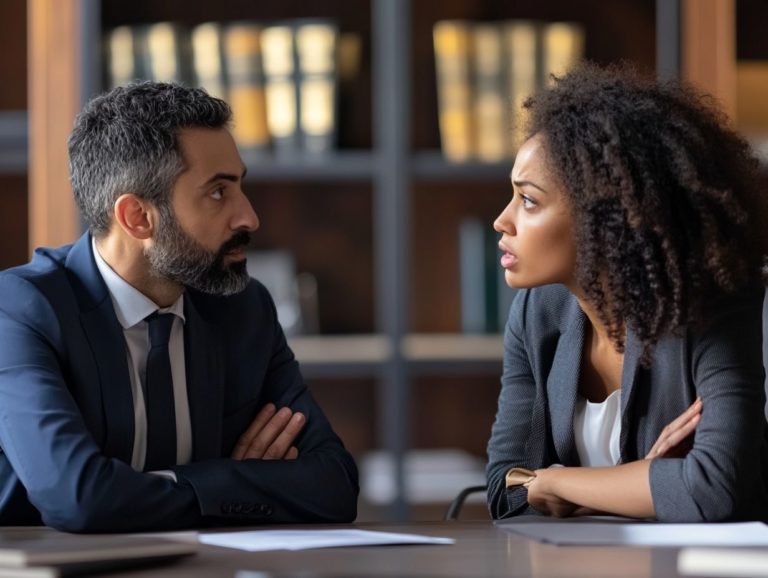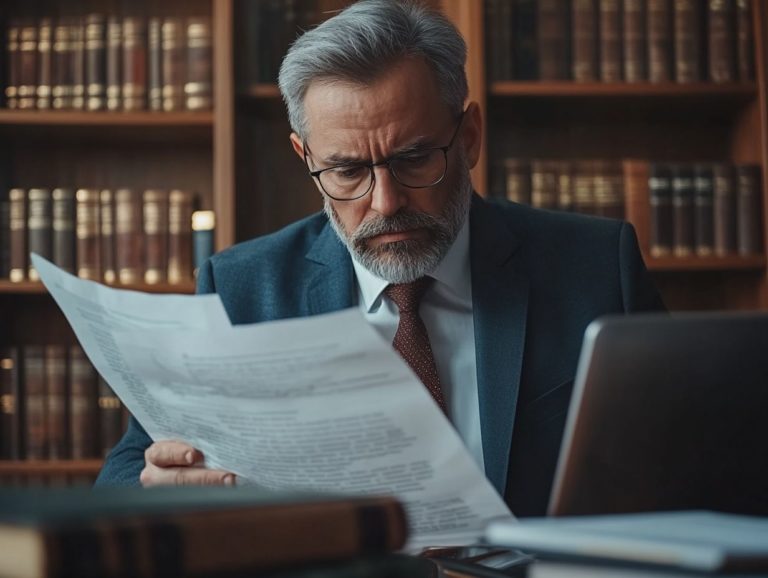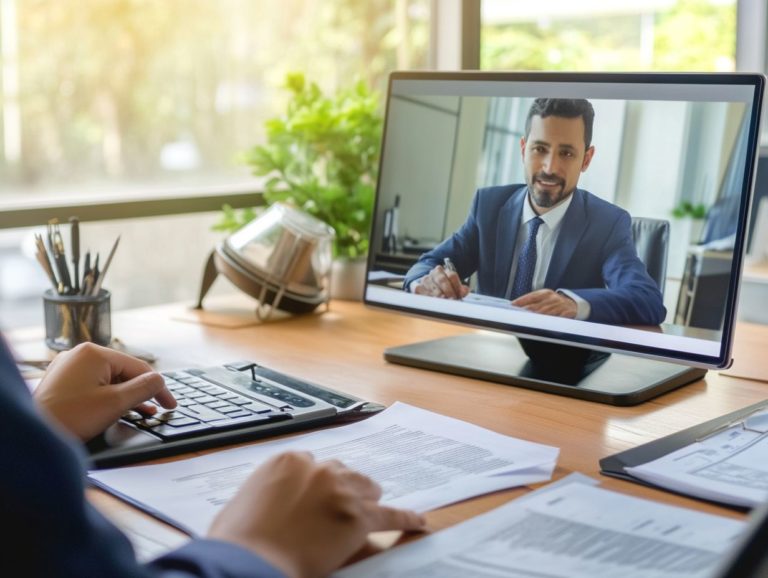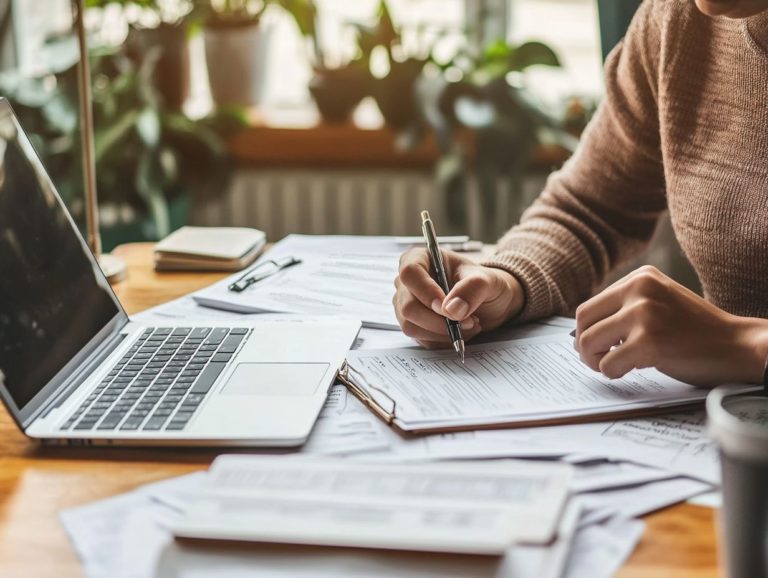The Importance of Client-Attorney Communication
Effective communication serves as the foundation of a successful client-attorney relationship. It cultivates trust and understanding and plays a crucial role in navigating the intricacies of legal matters.
This article delves into the vital components of communication in legal cases. It emphasizes strategies that attorneys can use to foster clearer dialogue and elevate client engagement.
By addressing common communication pitfalls and providing actionable insights, you will uncover how robust communication can profoundly influence case outcomes. Discover the key to a strong legal partnership!
Contents
Key Takeaways:
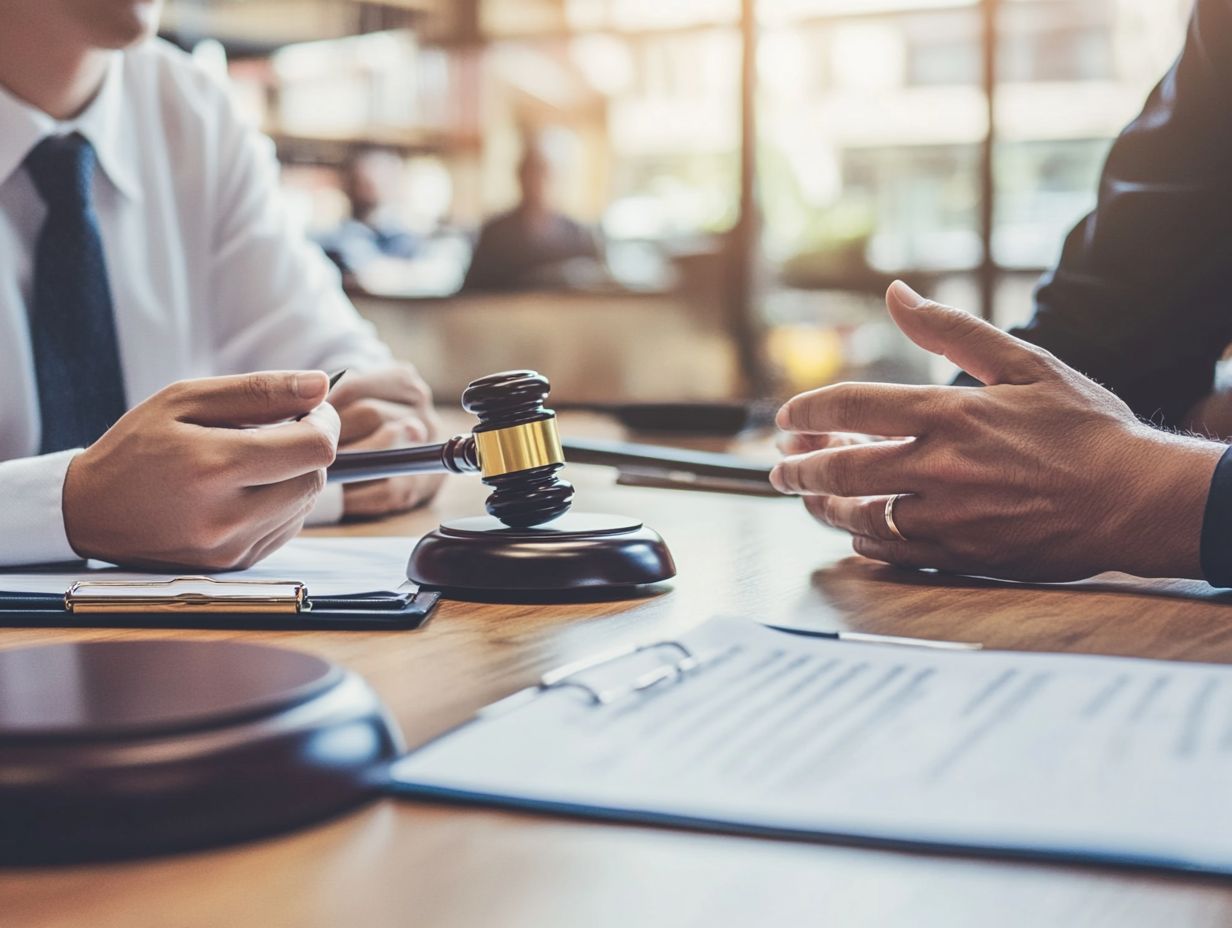
Effective communication is key in client-attorney relationships.
It builds trust and understanding, leading to better legal outcomes.
Attorneys should listen actively and communicate clearly.
Avoid common pitfalls, such as lack of communication.
Set clear expectations and provide regular updates.
Why Communication is Crucial in Client-Attorney Relationships
Effective communication in client-attorney relationships is essential for building trust, meeting your expectations, and enhancing the lawyer s reputation.
It creates a collaborative atmosphere where you feel heard and understood. This significantly improves your overall experience.
By understanding emotions and really listening, attorneys can customize their approach to address your unique needs while skillfully navigating the complexities of your legal situation.
Using clear communication helps lawyers be transparent and clear during your legal journey. This sets the stage for successful legal outcomes and fosters a positive relationship.
The Role of Communication in Legal Cases
Communication is crucial in legal cases. It acts as the essential link between you and your lawyer, shaping the direction and outcome of the entire legal process.
When effective dialogue is established, it not only brings clarity to legal trends but also ensures that your unique needs are understood and addressed throughout your case.
For example, lawyers who really listen can better discern your expectations and concerns, fostering a more collaborative environment.
Using digital communication tools like secure messaging apps and video conferencing platforms ensures you receive timely updates and enjoy increased accessibility.
This makes you feel supported and well-informed. By building a reputation for attentive and responsive communication, a lawyer can significantly enhance their standing in the community, leading to greater client satisfaction and retention.
Effective Communication Strategies for Attorneys
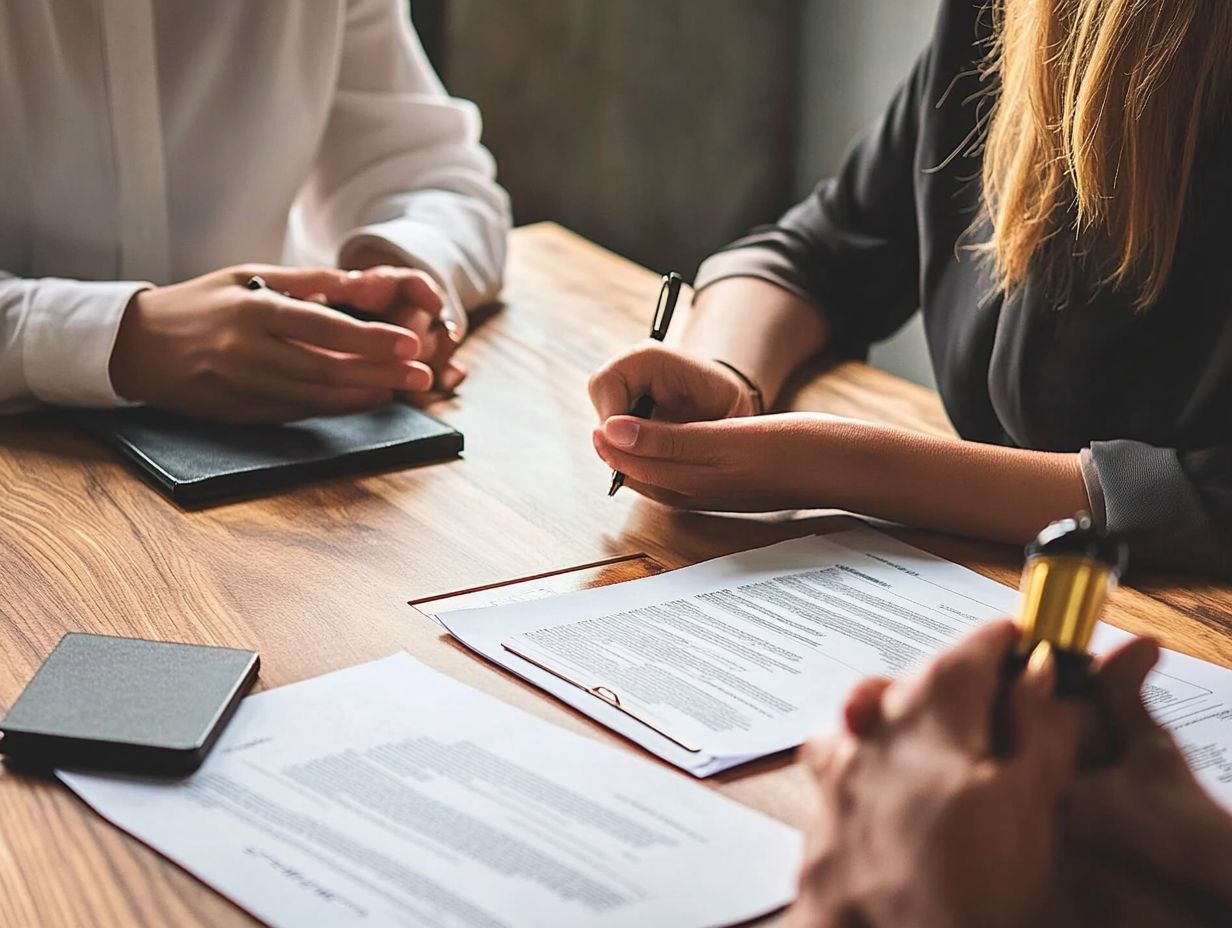
You can greatly enhance your effectiveness as an attorney by adopting strong communication strategies.
This involves really listening to your clients, selecting appropriate communication channels, and engaging in continuous training to refine your interpersonal skills.
By prioritizing these elements, you position yourself for greater success in your practice.
Building Trust and Understanding with Clients
Building trust and understanding with clients is vital for attorneys. It fosters a deeper connection that enhances collaboration and bolsters your reputation as a lawyer.
In the legal field, empathy becomes a powerful ally, allowing you to grasp your clients’ emotions, fears, and needs. By really listening and utilizing techniques such as open-ended questioning and reflective listening, you create an atmosphere where clients feel valued and understood.
When you inquire about your clients’ personal goals and expectations for the legal process, you gather essential information and signal that their perspectives matter. This attentiveness solidifies trust and leads to more effective representation.
Clients are far more likely to share critical details that could influence the outcome of their cases when they feel heard.
Active Listening and Clear Communication
Active listening means fully focusing on what the client is saying, not just hearing their words. Clear communication is essential in cultivating effective relationships with clients. These skills are crucial for meeting your clients’ needs and creating a positive legal experience.
They strengthen the bond between you and your clients and ensure that all relevant information is accurately conveyed and understood.
When you engage in active listening, you capture the nuances of your clients’ concerns, which is vital for providing precise and relevant legal advice.
Techniques such as:
- Paraphrasing your client s comments to confirm understanding,
- Maintaining appropriate eye contact to show engagement,
- Asking open-ended questions
can greatly enhance your listening skills. Incorporating visual aids during discussions helps clarify complex legal concepts, making your communication more efficient and effective.
Common Communication Pitfalls in Client-Attorney Relationships

Avoiding common communication mistakes in client-attorney relationships is crucial for your success. Not meeting what clients expect or lacking emotional intelligence can seriously undermine your reputation as a lawyer and diminish the overall client experience.
Focus on these key areas to build trust and ensure positive outcomes for both you and your clients.
Issues with Lack of Communication
A lack of communication in client-attorney relationships often leads to unmet needs, eroded trust, and a tarnished reputation for the lawyer.
When clients feel unheard or neglected, they may misinterpret intentions, perceiving their attorney’s actions as dismissive. For instance, if a lawyer doesn t keep clients in the loop about significant developments in their case, they might jump to conclusions that damage trust.
This gap in understanding can create frustrations that impact the attorney-client relationship and the outcome of the case. Maintaining open lines of communication is crucial; regular updates and transparent dialogues ensure clients feel valued and informed.
Improving Communication in Client-Attorney Relationships
Enhancing communication within client-attorney relationships is essential for effective collaboration and meeting client expectations.
This can be accomplished by actively seeking client feedback and implementing targeted communication training.
Tips for Better Communication
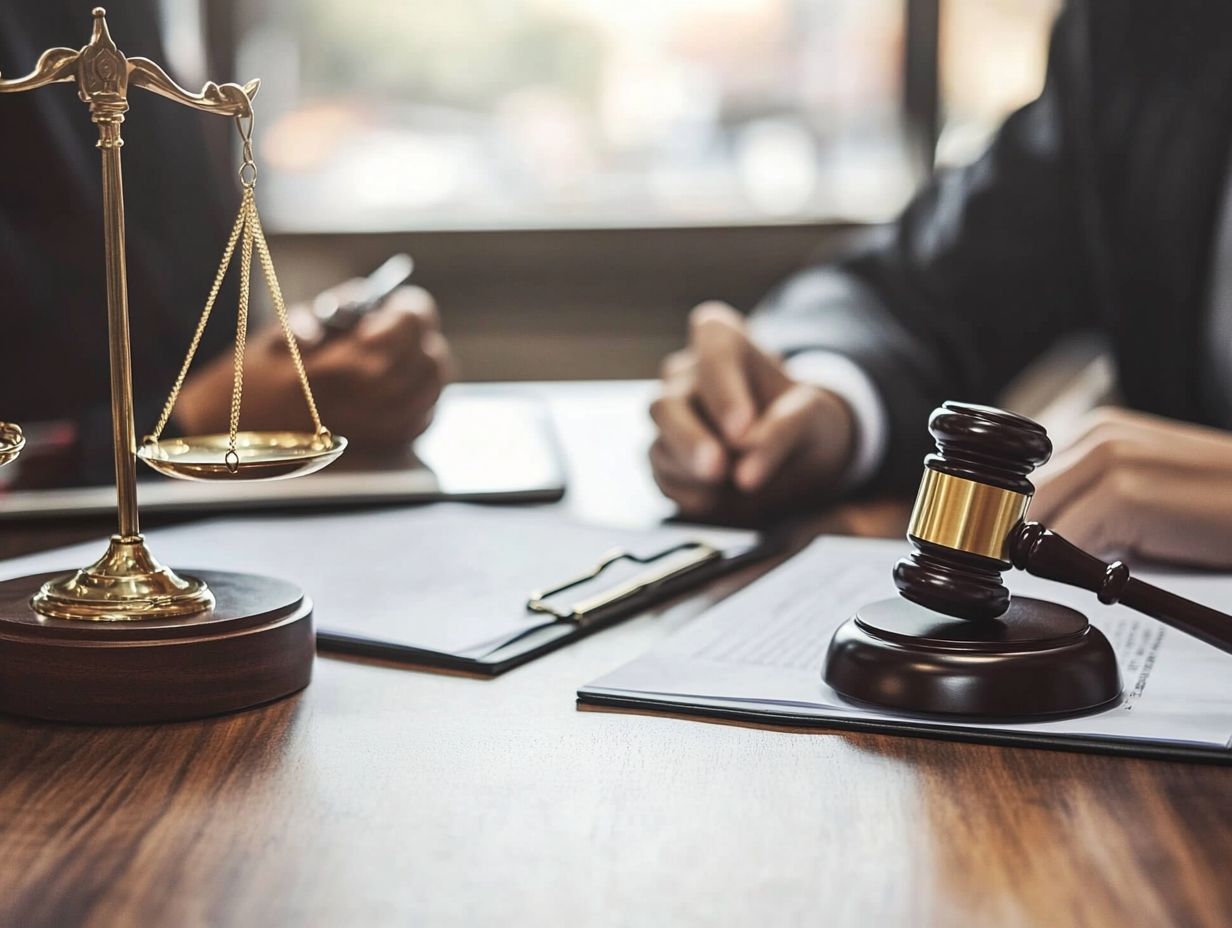
Implementing strategies for enhanced communication can transform your relationship with clients. Prioritizing emotional intelligence, enhancing active listening, and utilizing effective communication tools are vital.
Start adopting these strategies today to build trust and ensure clients feel understood and valued throughout their legal journey.
For instance, use active listening techniques such as summarizing a client’s concerns or asking clarifying questions. Regularly check in with clients to gauge their feelings about their case’s progress. This not only keeps them informed but also validates their emotions.
Leveraging technology, like secure messaging platforms, can further streamline your communication process.
Collectively, these approaches enhance the client experience and underscore the essential role emotional intelligence plays in navigating the dynamics of legal representation.
The Impact of Good Communication on Legal Outcomes
Good communication directly impacts your legal success. By aligning your expectations with your attorney’s capabilities, you foster a collaborative environment that streamlines the process and enhances the lawyer s reputation.
This synergy between client and attorney can make all the difference in achieving favorable resolutions.
How Communication Can Affect Case Success
Communication can profoundly influence the success of your case. When you establish clear and effective communication with your lawyer, it builds trust, manages expectations, and enhances the overall reputation of the legal team.
When you feel informed about your legal journey, you are more likely to cooperate and provide essential information that could be pivotal for your case. For example, in a personal injury case, clients who shared timely updates through regular communication often saw favorable outcomes, resulting in significant compensation settlements.
On the flip side, cases where lawyers fail to maintain transparency can lead to misunderstandings, frustration, and ultimately, disappointing results. A lawyer’s ability to explain legal strategies and outcomes in relatable language boosts your confidence and strengthens the lawyer-client relationship, which is crucial for navigating the complexities of the legal landscape.
Frequently Asked Questions
What is client-attorney communication?
Client-attorney communication refers to the ongoing dialogue between you and your attorney, where information, updates, and instructions are exchanged to facilitate legal help.
Why is communication between a client and attorney important?
Good communication with your lawyer is key to winning your case. It allows for a clear understanding of the case, proper evaluation of options, and informed decision-making. It also ensures your lawyer is aware of any new developments or changes in the case.
How does good client-attorney communication benefit me?
Good client-attorney communication keeps you informed and involved in your case. It helps you understand the legal process, the status of your case, and any potential outcomes. It also allows you to provide essential information or documents that may be necessary for your case.
What are the consequences of poor client-attorney communication?
Poor client-attorney communication can lead to misunderstandings, delays, and even negative outcomes for your case. It may also result in dissatisfaction with your attorney’s services, creating a strain in the relationship and affecting the overall outcome of the case.
How can I improve communication with my attorney?
Improve communication by being proactive and responsive. Respond promptly to any requests for information or updates, and ensure you provide all necessary documents. Schedule regular check-ins or meetings to discuss your case and address any concerns or questions you may have.
What can an attorney do to improve client-attorney communication?
An attorney can enhance communication by setting clear expectations and preferences from the start. They should provide regular updates on the case, promptly respond to questions, and actively listen to your input. Utilizing various communication modes, such as phone calls, emails, and in-person meetings, can also help facilitate effective communication.
Don’t miss out! Stay informed for your success by contacting your attorney for better communication.

